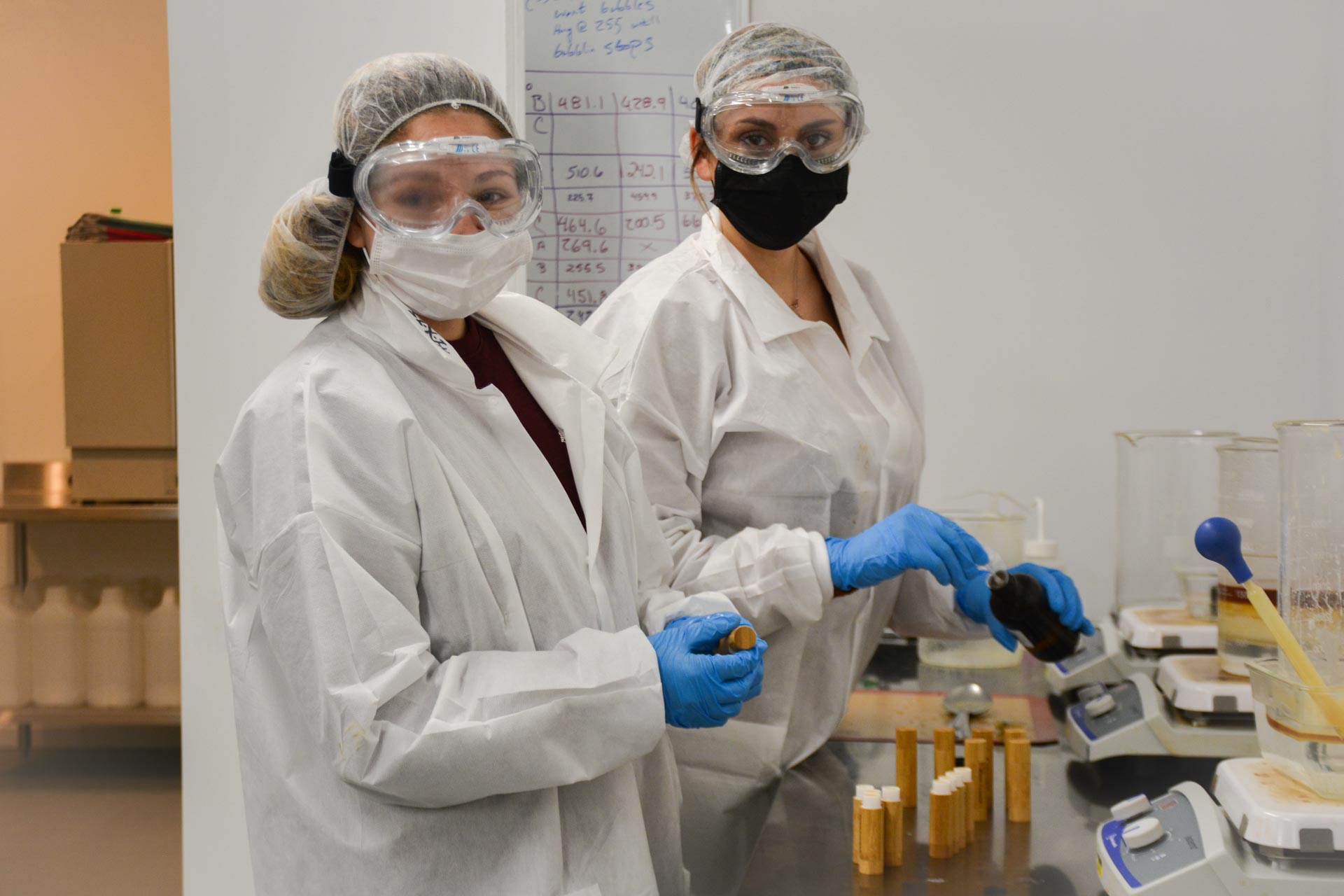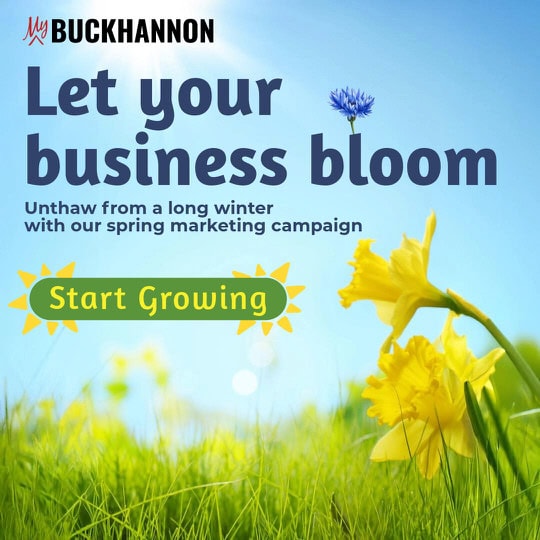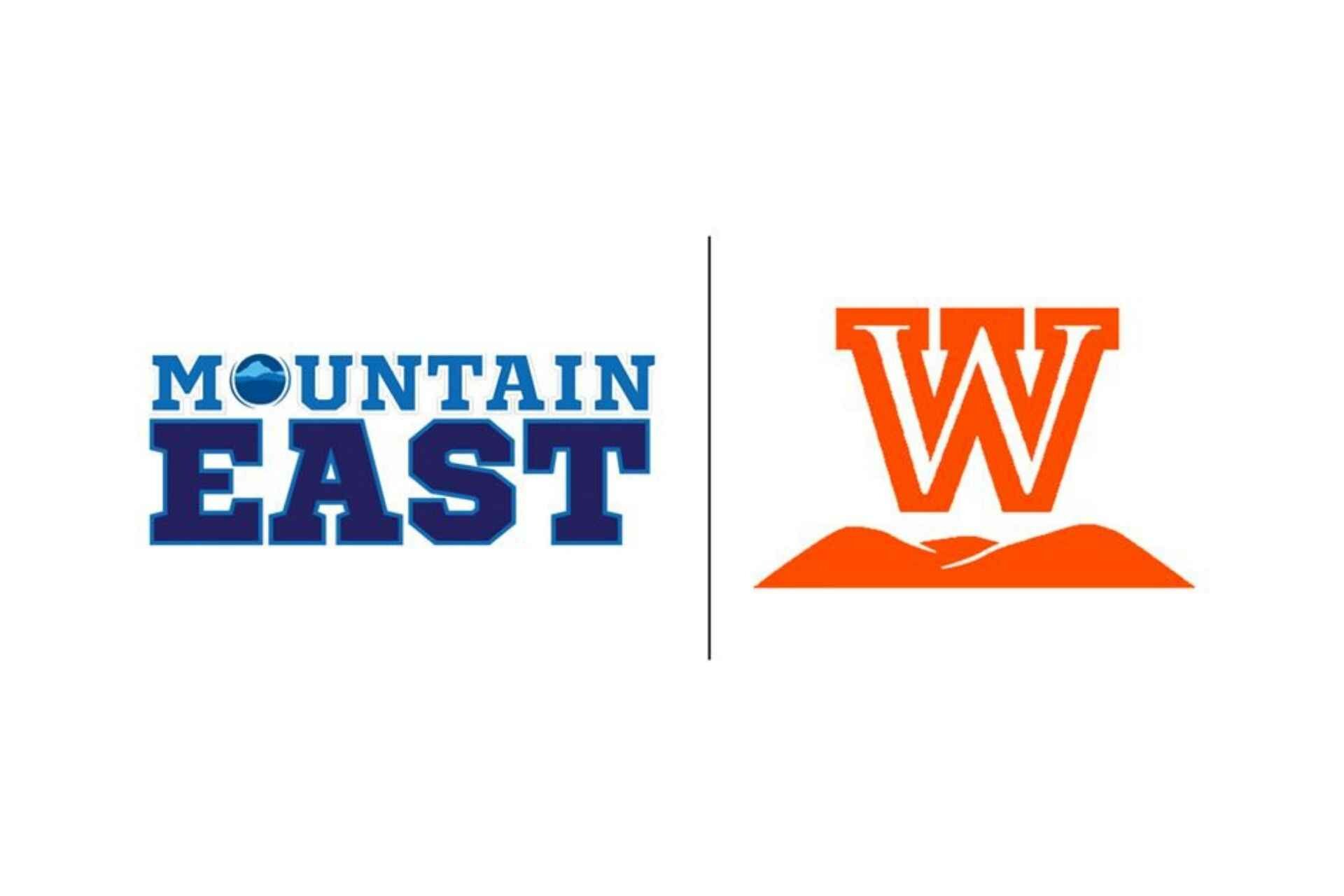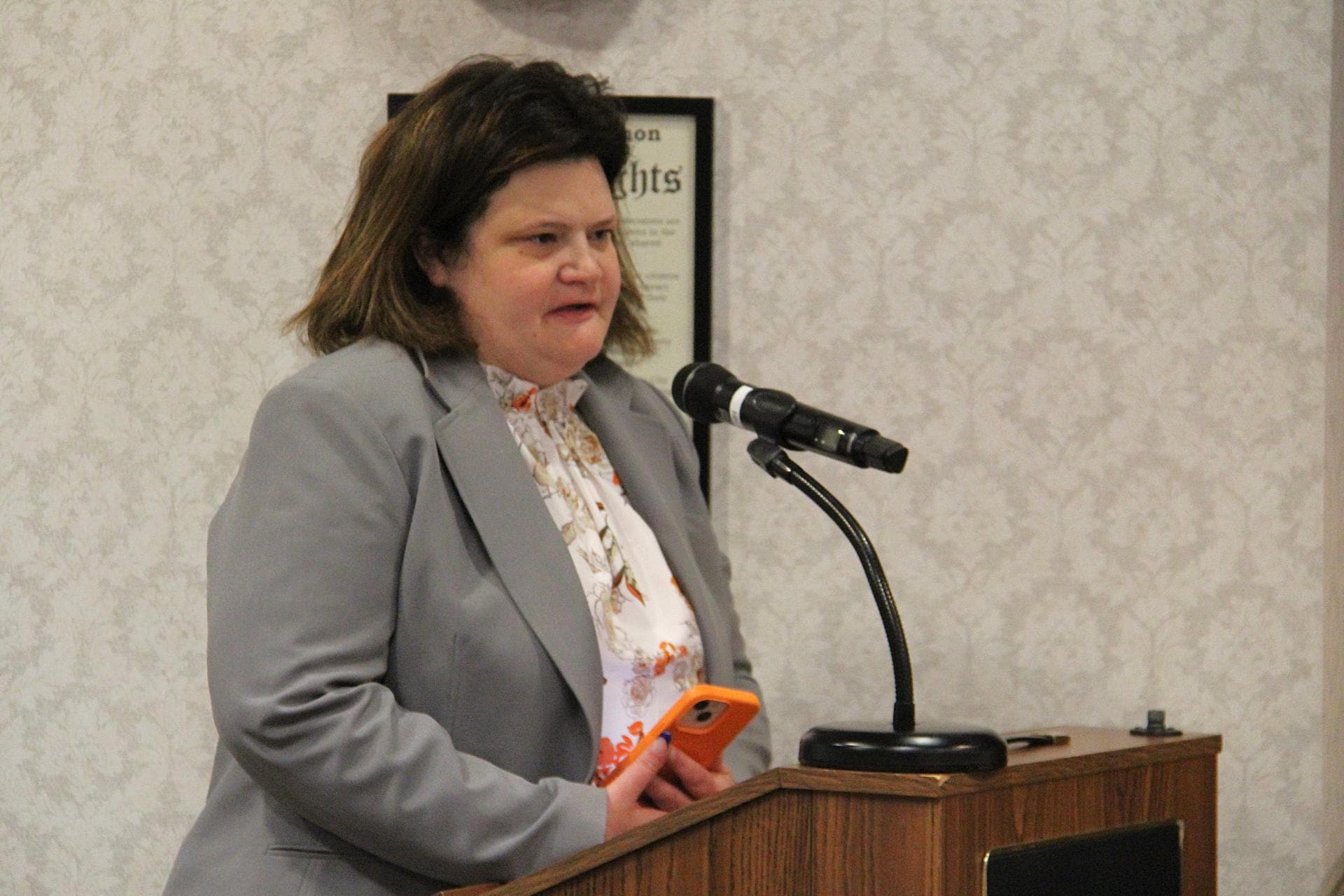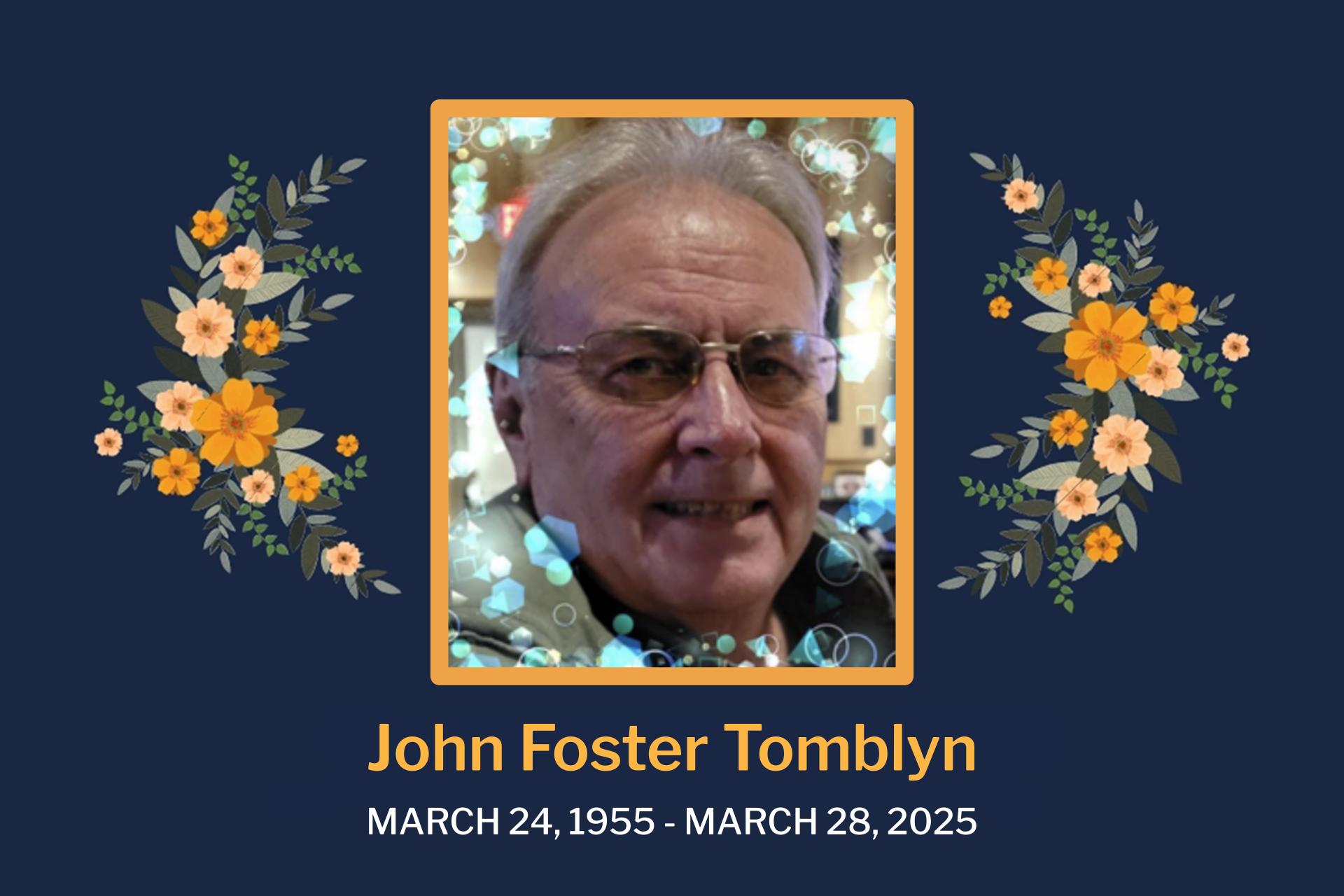BUCKHANNON – A new day in industry has dawned, and Upshur County, which is now home to one of only four fully operational high-volume hemp processors in the Mountain State – is on the cutting edge.
In fact, New Harvest Botanicals, LLC – owned by entrepreneurs Jason and Jamie Queen and their daughters – is even more of a rarity. It’s the only business in West Virginia that grows, harvests, commercially dries and processes hemp, fashioning it into CBD, the Queens explained one day last week at their hemp processing facility, located just a few miles outside Buckhannon on Route 33 East.
Extracted from the hemp plant, CBD oil has been credited with providing numerous health benefits, such as relief from chronic seizures, chronic pain and inflammation, anxiety, depression, insomnia and more, although it’s not yet regulated by the U.S. Food and Drug Administration. CBD contains .3 percent or less of THC, the psychoactive component in marijuana that’s found in the cannabis plant.

Another hallmark of their business the Queens believes sets them aside is their pledge to only buy biomass – hemp or other plant materials – from West Virginia farmers.
“We are really proud of the fact that we are the only processor in the state that has bought from West Virginia farmers, and I think all of our growers are super happy with how we treat them,” Jamie said. “We’ve bought from farmers all over the state. Buckhannon is kind of the hub though. There were more permits [issued to grow hemp] in Upshur County than any other place in the state.”
The Queens spent a recent Friday giving My Buckhannon a tour of their shiny new processing facility just outside town, explaining the ins and outs of their extraction/processing business – New Harvest Botanicals – as well as its sister company, Moon Flower Hemp. Moon Flower Hemp is a retail line largely operated by the couple’s daughters, 22-year-old Riley and 20-year old Macie.
Hometown hemp and CBD
Here’s a glance at New Harvest Botanicals by the numbers: The company has the capacity to process about 180-200 pounds of biomass per day. And although the Queens purchased biomass, or hemp/plant material, from 15 farmers across the Mountain State, New Harvest Botanicals planted 15,000 plants on eight acres of their own farmland.
“It took us 15 days to harvest our eight acres of 15,000 plants, and that was with a lot of people helping – sometimes up to 20 a day,” Jason said. The harvest season typically begins in September and wraps up about the first week of November, he added.
New Harvest Botanicals has hired 10 full-time employees and two part-time employees who work throughout the growing, harvesting, processing and bottling steps, which take place at an in-town commercial drying facility, a processing facility out in the county and a bottling and distribution locale in corporate limits.
New Harvest Botanicals and its retail arm, Moon Flower Hemp, are predominantly female-owned, Jamie said.
“We co-own it with our daughters, Riley and Macie, so since three of us are female, and one of us is male, so we are a female-owned company,” Jamie said, smiling.
“It wasn’t specifically in our plans,” she added. “We didn’t say that we have to hire ‘X’ number of females, but it just so happens that a lot of the most important positions here at New Harvest are females.”
Take, for example, Cayla Collett, New Harvest Botanicals’ head of research and development. Collett, who heads up the laboratory, is a recent graduate of West Virginia Wesleyan College who majored in physics and chemistry and is currently earning a degree in chemical engineering online through Kansas State University.

“We had to have somebody in a position in our laboratory through the processing stage of our business that had an education that was beyond anything obtainable through reading or researching or Googling,” Jamie said, “so there’s a lot of formulations and math that goes along with what she does in there.”
Jamie and Jason said they’re proud Collett grew up in Elkins, graduated from Wesleyan and is a woman. Another key aspect of her job is researching protocols and compliance and keeping New Harvest Botanicals’ and Moon Flower Hemp’s practices in conformity with what industry experts anticipate FDA guidelines might one day be.
Although no FDA guidelines have been issued, New Harvest Botanicals is trying to stay current.
“We’re trying to stay ahead of that,” Jamie said. “Even though there are no guidelines now, we’re trying to do it anyway, so she’s researching compliance.”
How the extraction and processing process work
Biomass purchased from West Virginia farmers is brought in, ground and sorted. The Queens’ CO2 extraction machine – which uses pressurized carbon dioxide to pull desired active compounds out of plant material – can be set at varying temperatures, pressures and times to create specific types of crude CBD oil.
The product can be sold at a range of stages including as cannabidiol crude, depending on what type of end-product New Harvest Botanicals’ clients – or purchasers – desire.
“Ninety percent of the business model is to sell wholesale bulk CBD oil to other retailers, so we do that not only in the state, but across the country,” Jamie said.
Right now, New Harvest is only producing full-spectrum CBD oil – that is, CBD oil that contains .3 percent or less of THC, the psychoactive component found in marijuana. CBD without any THC is known as isolate, Jamie said. But the Queens believe in the efficacy of full-spectrum CBD.
“That’s why we decided to do full-spectrum, especially at the beginning, because we believe in that process,” Jamie said. “We believe that you need all those cannabinoids in conjunction, even if it’s that little bit of THC. All of those cannabinoids working together really, to us, really creates the best formula for someone.”
Even an amount as small as .3 percent or less of THC may show up in a drug test, Jamie cautioned, since right now, those tests only detect the presence – not the amount – of THC unlike tools that can measure an impaired driver’s blood alcohol content.
However, New Harvest is in negotiations with an international client that’s interested in partnering to produce isolate, i.e. THC-free CBD.
“If that comes through, we will probably add additional equipment just for that client,” Jamie said.

Following the extraction process, CBD crude moves to the laboratory, where it’s mixed with ethanol – a renewable fuel made up of corn and other plant materials and heated before being deposited in ultra-deep-freeze freezers. Then, it undergoes a triple filtration process.
“So, they’ll pour that material through it, and what that filtration machine does is, all the plant waxes and lipids are caught in the top, and what passes through the bottom is pure CBD and ethanol,” Jamie explained.
Next, the CBD oil and ethanol separated through a rotavapor, which catches the ethanol before it evaporates so it can be reused in the extraction and refinement process.
Moon Flower Hemp
Creating a retail product line from their own CBD oil wasn’t in the Queens’ first-year plan, but their daughters, Riley and Macie, were adamant, and so Moon Flower Hemp, or Moon Flower CBD, was launched just before Christmas 2019.
Riley Queen’s head of design and marketing, and Macie is Collett’s laboratory assistant and public relations point person. In addition to compliance, Collett’s job is to conduct research.
“She’s always researching what will make each individual product the best it can be,” Jamie said. “You have to know, for instance, what specific terpenes work together to create a specific effect, such as a remedy for insomnia.”
“If you’re struggling with insomnia, there’s actually different terpenes and cannabinoids that the plant produces that, if you know what those are, and you put them together, then you’re going to get the result of helping people specifically with insomnia, or people specifically with nausea,” Jamie added.
“That’s a much better approach than just saying, ‘here’s CBD, go take it,’” Jason said.

One of Moon Flower’s top priorities is educating people about quality and dosage and combatting misinformation circulating about CBD products. Moon Flower products – which range from tinctures and salves to Chapstick, bath soaks, tea and gummies – come with a suggested dosage chart based on weight and condition severity.
Moon Flower also prioritizes using as few plastics as possible, opting for eco-friendly packaging.
“We want to be as eco-friendly and sustainable as possible, and it’s more expensive to do that, and we realize that, but it’s something we’re committed to,” Jamie said.
In the future, New Harvest and Moon Flower aim to eliminate all plastic from their packaging and even produce their own packaging with waste generated by the extraction process, essentially utilizing the entire cannabis plant, Jason said.
People afflicted by inflammation and localized pain who’ve purchased products from Moon Flower’s line online have already raved about results, and Jason said hearing the feedback has been rewarding.
“It’s so nice already to start hearing feedback like, ‘how do I get more of it?’ and ‘It’s actually working where drugs have not,’” he said. “Just the feedback that we’re already getting, even unsolicited, is wonderful.”

Although Moon Flower isn’t yet available at retail locations yet, it will soon be for sale in several counties, including Upshur, Lewis, Randolph, Tucker, Harrison and Kanawha. And everything, from start to finish, is crafted in Upshur County.
“We don’t white-label our products,” Jamie said. “Everything is produced by Cayla in research and development in that lab. Everything that we use is comprised of all organic materials.”
Check out Moon Flower’s product line at moonflowerhemp.com/shop, and learn more about New Harvest Botanicals here.
